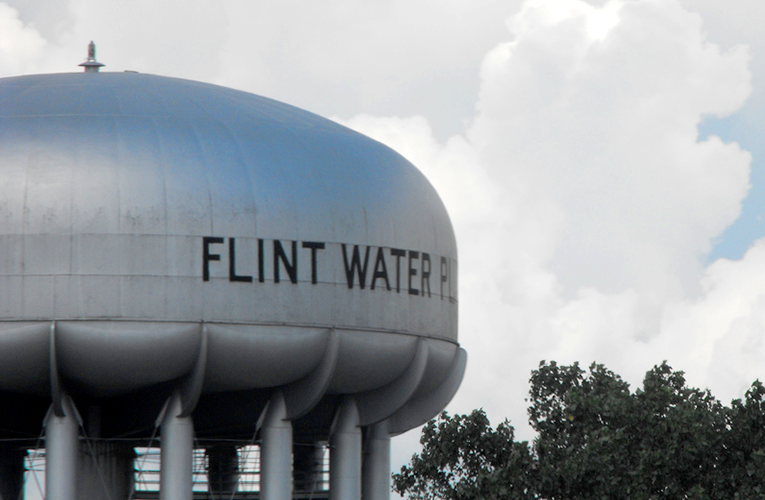I get up in the morning and drink a glass of water before I do anything else. I rinse a piece of fruit under the tap. I prepare instant oatmeal with a half cup of water. I have a cup of tea that I prepare with boiling tap water. I wash the breakfast dishes. I take a shower and brush my teeth.
Like most Americans, I don’t give a lot of thought to the water I use before I leave the house.
I’m thinking about it now, because I just spent two days on Capitol Hill with residents of Flint, Michigan. They’re in the third year of having to think constantly about the water they are using because they can’t trust the water that comes out of the tap in their homes and workplaces. They’re thinking about it because they have to acquire and open bottle after bottle of water to rinse that piece of fruit. To have a cup of tea. To prepare breakfast. To bathe their children.
Flint residents think about the water they use because they have to travel across town to get bottles of water to accomplish those life tasks that most of us do without thinking every day.
I was honored to work with colleagues from the Sierra Club and Environment New Jersey to help Flint mothers and activists make their way through the House and Senate office building maze as they told their stories to members of Congress and their staff, and then told those stories to staff at the White House and the Environmental Protection Agency.
Quite frankly, the stories from Flint are hard to hear. It’s outrageous that families in Flint are charged some of the highest water bills in the nation for water that they can’t use. It’s unthinkable to most that the lead contamination crisis that began in Flint more than two years ago has not been “solved” by now. It’s unconscionable that Flint families are in the third year of being unable to turn on the faucet and get a drink of water.
It’s important that these people took time off from work and away from their families and told stories of their children who are suffering from the health effects of lead poisoning – one mother brought us to tears talking about her eight-year-old daughter’s teeth disintegrating as she ate a sandwich. Another mom told us about how her family of five gets in the minivan once a week to travel out of the county to have a shower.
Even more troubling than the personal stories from Flint is the possibility that Congress might leave Washington before passing legislation that includes funds targeted toward repairing some of the damage, and preventing other American communities from suffering similar crises.
While the Flint delegation was in our last DC meeting at the Environmental Protection Agency, the Senate passed the Water Resources Development Act (WRDA) by a broadly bipartisan vote of 95-3. The bill authorizes water-related projects across the country, including at least $100 million to replace and repair lead water pipes in Flint.
The House version of the bill has not yet come to the floor, but does not contain the funding for Flint. We heard in a number of offices that the conference of the two bills is likely to retain the Senate’s funding provision for this hard-hit community, but with so few days left on the Congressional calendar, the delegation from Flint shouldn’t be blamed for being skeptical.
Congressman Dan Kildee, the representative for Michigan’s 5th District welcomed his constituents from Flint at a press conference at the Capitol, saying about funding for Flint: “They could put it in the water resources bill. They could put it in one of the spending bills. As far as I’m concerned, you could put it in the morning prayer.”
Let’s not leave it to prayer or partisan politics. Take our action here and let your member of Congress know that the final water resources bill that goes to the President should include funding for Flint and funding to prevent future water crises in communities across the U.S.





